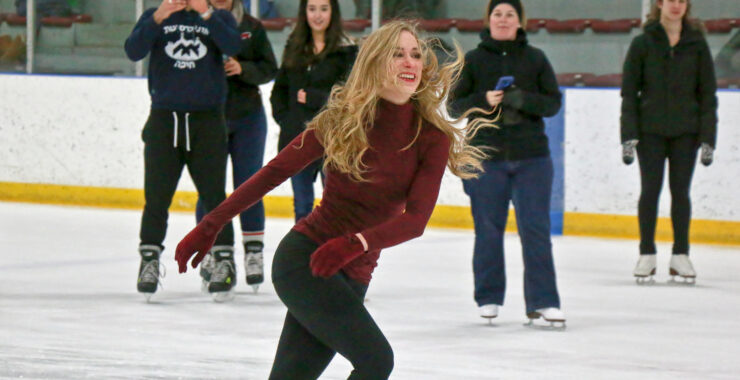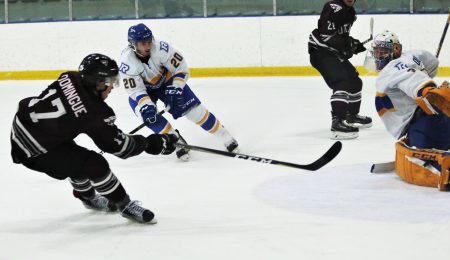Bronze medalist figure skater Joannie Rochette speaks and skates with students
As part of the Snow Festival celebrations, students at the University of Ottawa had the opportunity to meet a Canadian Olympian on Jan. 21.
Figure skater Joannie Rochette was invited to give a talk in French, as well as to participate in a skate-around with students.
In case you need a refresher, Rochette is a highly decorated skater, she’s a six-time Canadian Champion, a World silver medalist, but is most commemorated for her bronze medal win at the 2010 Vancouver Winter Olympics.
Her bronze medal win was exceedingly emotional, as she received the news of her mother’s death just days before but still managed to enthrall a nation and earn a podium finish.
Rochette, among a room of about 100 students in the Faculty of Social Sciences building, discussed many of the key moments throughout her career and some of the lessons she learned that helped her succeed on a world level.
At the age of 10, Rochette mastered the double axel and successfully performed it in competition, a skill many 17- and 18-year-old girls were performing at her small town club.
Despite her kind demeanor and undeniable skill, as a young athlete Rochette was dropped by coaches twice due to her stubborn nature and bad attitude.
Rochette described being dropped for the first time as a “catastrophe at the time, that brought an opportunity that was possibly the best thing to happen to me and my career.”
Afterwards, she started working with Manon Perron, the coach that would eventually help her realize her Olympic dream.
Rochette prepared for 20 years of her life to reach the pinnacle of competition, and highlighted meticulously planning her schedule and visualizing the lead up to Vancouver.
She said there was no preparation for the shock of her mother’s death, and that she decided to still skate because it was a goal they shared closely together.
“No matter how much you control and plan in your life, you need to be flexible, since you can’t think of everything,” said Rochette.
It is this ability to be flexible that she believes is the difference between a good or bad competition, or even a result on an exam.
Following her inspiring talk about her skating career, students had the opportunity to meet and skate with Rochette at the Minto Sports Complex.
She not only took the time to speak with everyone, but also showed off some of her skills, evoking the presence that made her a champion and Canadian hero on the ice.





